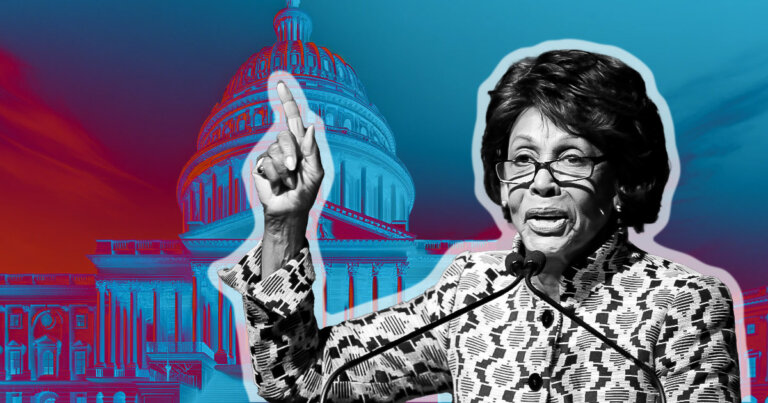 US lawmaker probing Meta’s involvement with digital assets, blockchain tech
US lawmaker probing Meta’s involvement with digital assets, blockchain tech US lawmaker probing Meta’s involvement with digital assets, blockchain tech
Congresswoman Maxine Waters has asked Meta to clarify its intentions regarding five trademark applications involving cryptocurrency-related services.

Gage Skidmore / CC BY-SA 2.0 / Wikimedia. Remixed by CryptoSlate
Congresswoman Maxine Waters, ranking member of the Financial Services Committee, has initiated an investigation into Meta’s involvement with digital assets over financial stability concerns.
Waters wrote a letter to top Meta executives Mark Zuckerberg and Javier Olivan on Jan. 22, highlighting a series of trademark applications that suggest a potential expansion into digital currency and blockchain technology, raising questions about the company’s intentions and activities in this domain.
She has requested clarification on Meta’s intentions regarding web3, digital wallets, and other related projects. These inquiries aim to ascertain the extent of Meta’s ongoing and future involvement in digital assets, including any potential research and development in stablecoin projects or partnerships with other stablecoin issuers.
Waters has long been a critic of the crypto industry and believes that the sector should be subject to the same stringent regulations as banks, especially stablecoin issuers.
Trademark applications
The five trademark applications — filed with the U.S. Patent and Trademark Office (USPTO) in 2022 — cover a wide array of services related to digital assets. The applications encompass a diverse range of services, from online social networking and dating services tailored for investors to downloadable software for digital currency management.
The applications also include provisions for various digital asset activities ranging from financial trades and exchanges of various forms of digital currency to the design and development of blockchain-related computer hardware and software.
The submissions have raised concerns, particularly given Meta’s past ventures into digital currency and the subsequent regulatory and public scrutiny.
Despite these filings, Meta staff asserted in October 2023 that the company is neither conducting nor planning any work on blockchain-based products or stablecoins. However, the statement contradicts the detailed descriptions in Meta’s trademark applications.
Letter requests
The USPTO process requires that, following the issuance of a Notice of Allowance (NOA), applicants must file a Statement of Use or an Extension Request within six months. This procedure is crucial for maintaining the validity of the trademark application and its associated goods and services.
Waters questioned whether Meta would file a Statement of Use or an Extension Request for their recent trademark applications and sought details on the extent of Meta’s research and development in stablecoin projects, partnerships, and the adoption of distributed ledger technology in its platforms.
Additionally, she asked if Meta intends to launch a cryptocurrency payments platform and how its technology facilitates various aspects of cryptocurrency handling, particularly in its Metaverse platform.
Waters’ letter pointed to Meta’s past endeavors in the digital currency realm, particularly the development of the Libra (later rebranded as Diem) cryptocurrency project, as an indication of the company’s digital asset ambitions.
The Libra/Diem project was met with significant opposition from regulators and policymakers due to concerns about privacy, national security, and the potential impact on global financial systems. Meta eventually sold it off amid the backlash.
Meta’s response to these inquiries will be closely watched, as it could significantly impact the regulatory landscape surrounding digital currencies and blockchain technology. The company’s actions and strategies in this evolving field remain a point of keen interest and scrutiny among policymakers and industry observers.






 Farside Investors
Farside Investors 



































































































